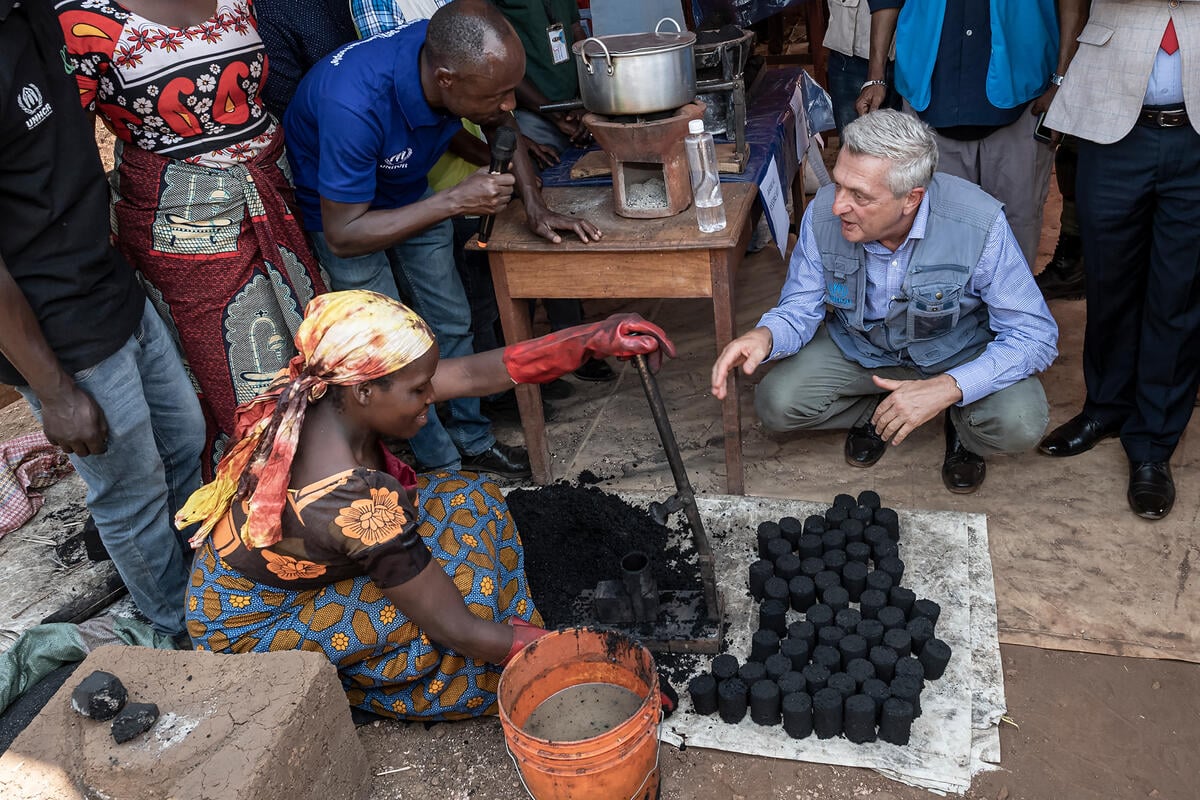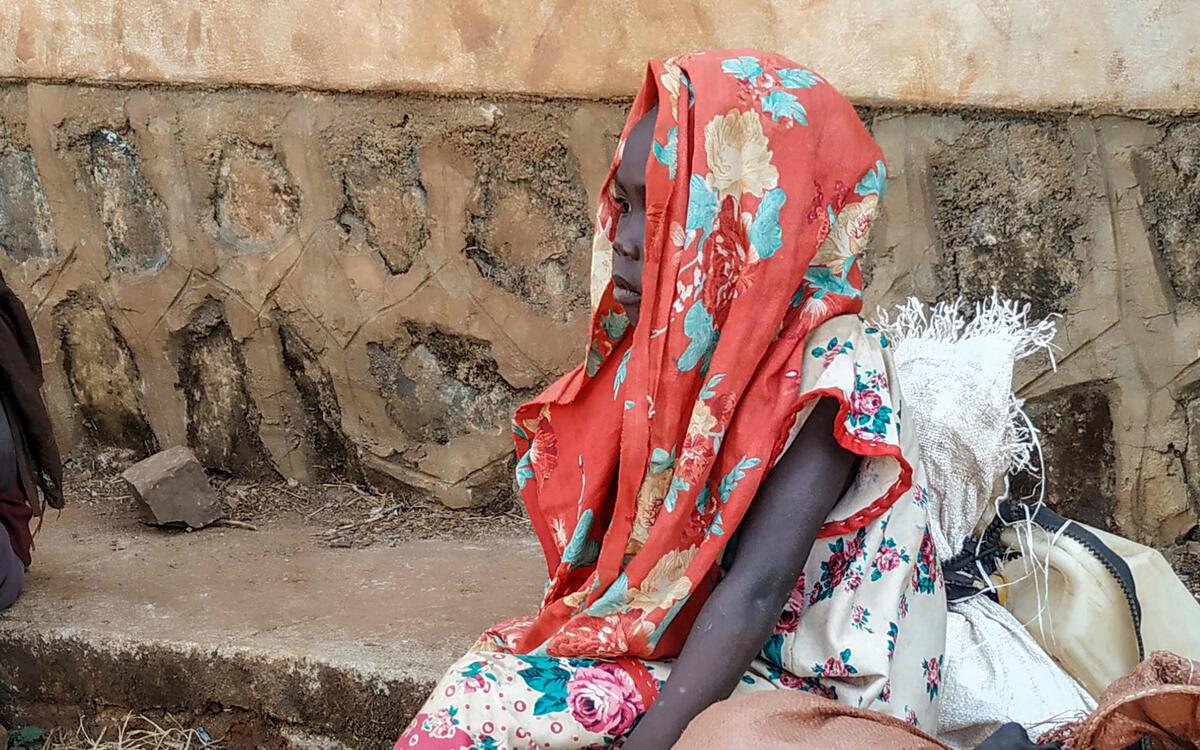UNHCR concerned about 5,000 Rwandans on Burundi border
UNHCR concerned about 5,000 Rwandans on Burundi border

GENEVA, May 11 (UNHCR) - The UN refugee agency has appealed for permission to move to safety thousands of Rwandans living in precarious conditions on the border with Burundi after fleeing fears of tribunals and threats of violence at home.
"The Rwandans say they fled to Burundi because of fears over the recent start of local 'gacaca' tribunals looking into the [1994] Rwandan genocide. Some 9,000 of these local courts are beginning their work across Rwanda," said UNHCR spokeswoman Jennifer Pagonis at a news briefing in Geneva on Tuesday. "The asylum seekers arriving in Burundi - some 7,000 since early April - have cited threats and rumours of massacres and revenge attacks as reasons for leaving Rwanda."
Niyonsaba, a 40-year-old Rwandan woman, said she had returned home from exile in Tanzania, but fled again - this time for Burundi - when she felt threatened after her husband's gacaca trial.
"At one of the gacaca sessions, my husband stood up to explain what had happened in 1994, and asked that they stop treating us like genocidaires," she said, explaining that his hands were clean. "But the result turned out otherwise. He was pursued and had to flee. They took that as an admission of his guilt and forced me to reveal his whereabouts or die in his place. I was afraid for my life, so I fled too."
Now encamped with two children in Busiga, which borders southern Rwandan's Butare province, Niyonsaba had no idea where to look for her husband and her three other children.
In mid-April, UNHCR transferred 1,800 of the 7,000 Rwandans from the border to two transit camps further inland in Burundi, but the movements were stopped on April 23 following a decision by the Burundian authorities. There are still some 5,000 Rwandans living in makeshift conditions at the border.
"We would like to see them transferred to the more secure transit camps as well so they can also receive adequate assistance," said Pagonis. She noted that for now, UN agencies and non-governmental organisations are providing emergency humanitarian assistance at the border on an ad hoc basis. This includes blankets, plastic sheeting and kitchen sets distributed by UNHCR, and medical care provided by the NGOs. But to date, this assistance remains limited.
Several hundred Rwandans may have already returned home as a result of a two-week sensitisation campaign launched by the Burundian and Rwandan authorities to allay the asylum seekers' fears and encourage them to go back to Rwanda. UNHCR staff have been attending many of these sensitisation meetings with asylum seekers as the campaign draws to an end on Thursday. The authorities of both countries are scheduled to meet the following day in Butare to evaluate the impact of the campaign.
"UNHCR welcomes assurances given by the Burundian authorities after a meeting on April 27 in Ngozi that the fundamental principle of non-refoulement will be respected, as well as the voluntary aspect of repatriation," said Pagonis. "We also welcome the decision of the Burundian government to carry out individual status determination, with UNHCR's involvement, for asylum seekers who do not wish to return to Rwanda."









